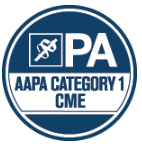
Monitor Patients with Carpal Tunnel Syndrome and Catch Transthyretin Cardiomyopathy Early in the Course
Released On
October 19, 2023
Expires On
October 19, 2024
Media Type
Internet
Completion Time
60 minutes
Specialty
Cardiology, Geriatric Medicine, Neurology, Primary Care, Radiology
Topic(s)
Cardiovascular Disease, Heart, Heart Disease, Surgery, Carpal Tunnel Syndrome
This activity is jointly provided by P2P Syncro and Postgraduate Institute for Medicine.


This activity is supported by an educational grant from Alnylam and Pfizer.
Credit Available
- Physicians — maximum of 1.0 AMA PRA Category 1 Credit(s)™
- Nurses — 1.0 Contact Hour
- Physician Assistants — 1.0 CE Credit
- Pharmacists — 1.0 Contact Hour
Target Audience
Healthcare providers in internal medicine, family medicine, surgery, cardiology, neurology, and healthcare professionals caring for patients with carpal tunnel syndrome and/or heart failure.
Program Overview
ATTR is a type of amyloidosis that affects the heart as well as other tissues such as the synovium of carpal tunnel. Bilateral carpal tunnel syndrome proceeds the symptoms of ATTR cardiomyopathy by a number of years. Topics on when to refer patients with carpal tunnel syndrome to cardiology and how to avoid misdiagnosis of ATTR by cardiologists are included in this program. Whether clinicians should ask about carpal tunnel syndrome in every heart failure patient or screen for amyloidosis at the time of carpal tunnel syndrome surgery will be discussed.
Learning Objectives
Upon completion of this activity, participants should be better able to:
- Recognize that the presence of carpal tunnel syndrome can be the beginning of ATTR cardiomyopathy.
- Monitor patients with carpal tunnel syndrome for left ventricular hypertrophy and other red flags of ATTR
- Rule out AL amyloidosis and make accurate diagnosis of ATTR cardiomyopathy.
Faculty

Brett W. Sperry, MD
Dr. Sperry is a cardiologist specialized in advanced heart failure and transplantation at Saint Luke’s Mid America Heart Institute, MO. He is also the Director of the Amyloidosis Program at Saint Luke's. Dr. Sperry’s research on the association between carpal tunnel syndrome and amyloidosis was published as a landmark study. He is a recognized expert in the field of cardiac amyloidosis.

Rola Khedraki, MD
Dr. Khedraki is a cardiologist specialized in advanced heart failure and transplantation at Scripps Clinic, CA. She is also the Associate Director of the Cardiology Fellowship Program at Scripps. Dr. Khedraki is an expert in the diagnosis and management of amyloid cardiomyopathy. Her research on the subject has been published in peer-reviewed journals.
Joint Accreditation Statement
 In support of improving patient care, this activity has been planned and implemented by the Postgraduate Institute for Medicine and P2P Syncro. Postgraduate Institute for Medicine is jointly accredited by the Accreditation Council for Continuing Medical Education (ACCME), the Accreditation Council for Pharmacy Education (ACPE), and the American Nurses Credentialing Center (ANCC), to provide continuing education for the healthcare team.
In support of improving patient care, this activity has been planned and implemented by the Postgraduate Institute for Medicine and P2P Syncro. Postgraduate Institute for Medicine is jointly accredited by the Accreditation Council for Continuing Medical Education (ACCME), the Accreditation Council for Pharmacy Education (ACPE), and the American Nurses Credentialing Center (ANCC), to provide continuing education for the healthcare team.
Credit Designation
Physician Continuing Medical Education
The Postgraduate Institute for Medicine designates this enduring material for a maximum of 1.0 AMA PRA Category 1 Credit(s)™. Physicians should claim only the credit commensurate with the extent of their participation in the activity.
Continuing Nursing Education
The maximum number of hours awarded for this Continuing Nursing Education activity is 1 contact hour.
Continuing Pharmacy Education
Postgraduate Institute for Medicine designates this continuing education activity for 1 contact hour(s) (0.1 CEUs) of the Accreditation Council for Pharmacy Education. (Universal Activity Number - JA4008162-9999-23-298-H99-P. Type of Activity: Knowledge
Continuing Physician Assistant Education
 Postgraduate Institute for Medicine has been authorized by the American Academy of PAs (AAPA) to award AAPA Category 1 CME credit for activities planned in accordance with AAPA CME Criteria. This activity is designated for 1.0 AAPA Category 1 CME credits. Approval is valid until October 19, 2024 . PAs should only claim credit commensurate with the extent of their participation.
Postgraduate Institute for Medicine has been authorized by the American Academy of PAs (AAPA) to award AAPA Category 1 CME credit for activities planned in accordance with AAPA CME Criteria. This activity is designated for 1.0 AAPA Category 1 CME credits. Approval is valid until October 19, 2024 . PAs should only claim credit commensurate with the extent of their participation.
Disclosures of Conflicts of Interest
Postgraduate Institute for Medicine (PIM) requires faculty, planners, and others in control of educational content to disclose all their financial relationships with ineligible companies. All identified conflicts of interest (COI) are thoroughly vetted and mitigated according to PIM policy. PIM is committed to providing its learners with high quality accredited continuing education activities and related materials that promote improvements or quality in healthcare and not a specific proprietary business interest of an ineligible company.
- Brett Sperry, MD
- Consulting:Alnylam, BridgeBio, AstraZeneca
- Speaker Bureau: Pfizer
- Rola Khedraki, MD
Nothing to disclose.
The PIM planners and others have nothing to disclose. The P2P Syncro planners and others have nothing to disclose.
Instructions for Participation and Credit
There are no fees for participating and receiving CME credit for this enduring activity. To receive CME credit participants must:
- Read the CME/CE information and faculty disclosures.
- Participate in the online activity.
- Submit the evaluation form.
Certificates will be emailed to the participant.
For Pharmacists: Upon completion of the online evaluation, your credit will be submitted to CPE Monitor. Pharmacists have up to thirty (30) days to complete the evaluation and claim credit. Please check your NABP account within thirty (30) days to make sure the credit has posted.
Course Viewing Requirements
Supported Browsers:
Internet Explorer 8.0+ for Windows 2003, Vista, XP, Windows 7, Windows 8.1 and above
Google Chrome 28.0+ for Windows, Mac OS, or Linux
Mozilla Firefox 23.0+ for Windows, Mac OS, or Linux
Safari 6.0+ for Mac OSX 10.7 and above
Supported Phones & Tablets:
Android 4.0.3 and above
iPhone/iPad with iOS 6.1 or above
Disclosure of Unlabeled Use
Postgraduate Institute for Medicine (PIM) requires that faculty participating in any CME activity disclose to the audience when discussing any unlabeled or investigational use of any commercial product or device not yet approved for use in the United States.
Disclaimer
This activity is designed for educational purposes. Participants have a responsibility to utilize this information to enhance their professional development to improve patient outcomes. Conclusions drawn by the participants should be derived from careful consideration of all available scientific information. The participant should use his/her clinical judgment, knowledge, experience, and diagnostic decision-making before applying any information, whether provided here or by others, for any professional use.
Contact Information
For CME questions please contact: [email protected].
